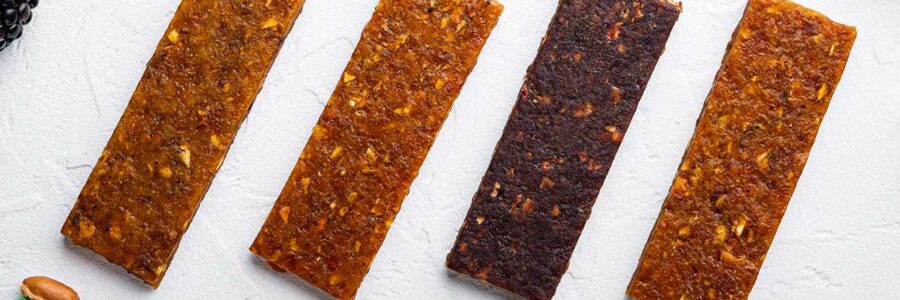As the market for plant-based products grows, protein bars like ALOHA have gained popularity for their convenience and seemingly healthy ingredients. With labels like “organic” and “plant-based,” it’s easy to assume that these bars are nutritious for people who want to avoid the processed junk found in most conventional protein bars. But a closer look at the ingredient list reveals a different story that might make you rethink relying on them as a healthy meal replacement.
During a recent conversation with a friend, we took a hard look at the ingredients in ALOHA bars. While they’re not the worst thing on the shelves, they certainly don’t live up to the standards of a non-toxic, health-focused lifestyle.
What’s Inside ALOHA Bars?
ALOHA protein bars contain various plant-based ingredients, some of which seem wholesome initially, but others are problematic for long-term health, particularly at the cellular level. Here’s a breakdown of what you’ll find:
- Brown Rice Protein: ALOHA’s primary protein source is brown rice protein, which is less bioavailable than animal-based proteins, meaning your body absorbs it less efficiently. Brown rice also has the potential to contain arsenic, a known toxin that can accumulate in your body over time.[1]
- Pumpkin Seed Protein: While better than some plant-based protein options, pumpkin seed protein still doesn’t provide the full range of amino acids your body needs for muscle repair and cellular health.
- Tapioca Fiber and Sugar: ALOHA bars contain 24 grams of carbohydrates, much of which comes from tapioca fiber and sugars. This can spike your blood sugar and contribute to inflammation, directly impacting cellular function and overall health.
- Sunflower Seed Butter: Sunflower seed butter is rich in omega-6 fatty acids. While omega-6 is necessary in small amounts, most people consume too much, leading to chronic inflammation that damages cells over time.[2]
Why ALOHA Bars Aren’t Ideal for Cellular Health
Cell Health News focuses on how dietary choices affect the body at the cellular level. ALOHA bars, with their processed ingredients and high carb content, may not be toxic per se, but they aren’t supporting your cells in the best way possible.
- Inflammatory Ingredients: The omega-6 fatty acids in sunflower seed butter and added sugars contribute to chronic inflammation. Inflammation at the cellular level damages tissues and is a root cause of many modern diseases, including heart disease, diabetes, and autoimmune disorders.[2]
- Poor Protein Source: Brown rice protein doesn’t provide the complete amino acid profile your body needs for cellular repair and growth. Compared to high-quality protein sources like grass-fed beef, pastured eggs, or even certain plant proteins like pea protein, brown rice protein falls short in effectiveness and nutrient density.[1]
- Carbohydrate Overload: These bars contain 24 grams of carbohydrates from brown rice and tapioca, which can lead to blood sugar spikes. Elevated blood sugar increases oxidative stress, which can damage cells and accelerate the aging process. This is especially concerning for anyone trying to maintain stable energy levels and prevent insulin resistance.
Better Alternatives for a Healthier Life
While ALOHA bars are not the worst protein bars on the market, they’re far from an ideal choice if you’re concerned about your health at the cellular level. If you’re looking for better on-the-go options that won’t compromise your long-term well-being, here are some cleaner alternatives:
- 100% Grass-Fed Beef Jerky: A nutrient-dense, high-protein option free from inflammatory oils and added sugars. Grass-fed beef is a rich bioavailable protein source supporting cellular repair and function.[3]
- Raw Nuts and Seeds: Raw almonds, walnuts, or macadamia nuts provide healthy fats and protein without the processed sugars and additives in protein bars. These nutrient-dense snacks are easy to carry and support cellular health by providing essential fatty acids, vitamins, and minerals.[4]
- Boiled Eggs: Eggs are one of the most complete protein sources available, offering a rich profile of essential amino acids, healthy fats, and important nutrients like choline, which support brain and cellular health. They’re easy to prepare in advance and perfect for on-the-go snacking.[5]
- Fresh Fruits and Vegetables with Nut Butter: Pairing sliced apples, celery, or carrots with almond butter or coconut butter gives you a fiber-rich snack balanced with healthy fats. This provides slow-burning energy without the blood sugar spikes caused by processed carbs.
The Bottom Line: Rethink Plant-Based Protein Bars
While ALOHA protein bars may seem like a convenient and healthy choice due to their organic and plant-based labels, a closer look at the ingredients reveals that they are not ideal for supporting cellular health. The reliance on low-quality plant proteins, excess carbohydrates, and inflammatory seed oils makes these bars less suitable for anyone striving for optimal well-being.
At Cell Health News, we encourage you to focus on whole, nutrient-dense foods that nourish your body at the cellular level. Real, unprocessed foods provide the building blocks your cells need to function optimally, reduce inflammation, and prevent oxidative stress.
If you’re serious about protecting your health, skip the processed protein bars and opt for clean, whole-food alternatives. Your cells—and your long-term health—will thank you.
References:
- Jayaprakash, Gopika, et al. “A Narrative Review on Rice Proteins: Current Scenario and Food Industrial Application.” Polymers, vol. 14, no. 15, July 2022, p. 3003.
- Patterson, E., et al. “Health Implications of High Dietary Omega-6 Polyunsaturated Fatty Acids.” Journal of Nutrition and Metabolism, vol. 2012, Apr. 2012, p. 539426.
- Espinales, Cindy, et al. “Strategies for Healthier Meat Foods: An Overview.” Preventive Nutrition and Food Science, vol. 29, no. 1, Mar. 2024, p. 18.
- Gonçalves, Berta, et al. “Composition of Nuts and Their Potential Health Benefits—An Overview.” Foods, vol. 12, no. 5, Feb. 2023, p. 942.
- Puglisi, Michael J., and Maria Luz Fernandez. “The Health Benefits of Egg Protein.” Nutrients, vol. 14, no. 14, July 2022, p. 2904.


